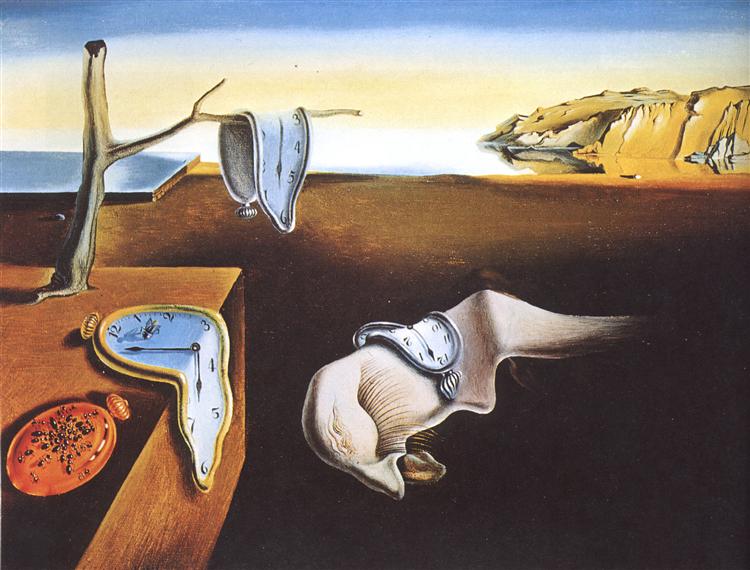Like a lot of soccer fans my age, I looked up to Lionel Messi as a kid. I honestly became a Messi fan before I became a soccer fan: the Barcelona teams played an iconic brand of the beautiful game and Messi was its posterchild. Fanboying Messi, 90% of which was debating why he’s better than Cristiano Ronaldo, was a pastime for me in my early teens, to the extent I voluntarily made a PowerPoint on the topic. My friends and I would play soccer for hours at the park, come home, and play FIFA for a few more hours- we loved the game, and for some of us, Messi was maybe the biggest reason why. The records and accolades speak for themselves, but personally Messi is responsible for a great deal of childhood joy and a large influence in a lifelong passion. His humility and team ethic influenced me, demonstrating that you don’t have to talk big to get big results. His continuous improvement, from great dribbler to unparalleled goalscorer to visionary playmaker and set piece maestro- taught me there’s always something to get better at, even if you’re the best. Even his flaws were something I learned from- maybe you need to be vocal to be a good leader, or visibly demonstrate indignance sometimes to motivate others. I’m well past the age where I look to athletes or any other celebrities for guidance or growth, but as he departs Barcelona and enters probably the twilight of his career I feel gratitude and appreciation to him as a role model for all these qualities. There’s no doubt that Messi leaving Barcelona was an emotional event for us- some of the same childhood friends, who I am amazingly not only in touch with but also living with- mentioned how it felt sad, and I too felt quite nostalgic.

One of my greatest Messi memories is the 2011 Champions League final
Maybe on some level Messi moving marked the end of an era in a personal way; I think that the brevity of athlete’s careers makes the passage of time especially noticeable for us sports fans. Thinking about the passage of time has been a scary thing- our perspectives on time seem unfixed and erratic, especially in the context of a yet-unending pandemic. During the first, pre-vaccine part of the pandemic, with so much happening that felt wrong in the world and so frustratingly little happening in the quotodien, I often felt trapped, not just physically but temporally- thinking about one week ago, two months ago, or three years ago in perpetual pseudo-quarantine gave me the impression of a nonlinear, bendable time that was at odds with the decidedly linear and rigid ways we measure it. I bet a lot of people relate to a similar anxiety, which was exacerbated by a pandemic but possibly natural to experience sometimes over the course of adulthood. The elusive nature of time was downright depressing at worst yet unexpectedly placating at best, and despite over a year’s worth of musings on this temporal dissonance, all I can conclude is that it’s been on my mind. Sometimes I would describe it as a drifting feeling- the sensation that time was like an uneven, unpredictable river upon which I was a drifting piece of wood, a passive participant to its unstoppable and unpredictable flow. On many occasions I’d feel entirely at peace or even joyful about this- things simply happened and would continue to, irrespective of my perception of how long it took. The chaos could be perceived as an adventure, the certainty of time itself more reassuring than troubling. I don’t know if I’m especially sentimental or, paradoxically, have too much time to think about these things- but I’m forgiving of myself and others because a lot has happened- processing all those things might just take more time too. Messi’s departure marked the end of an era in one sense, but so did the end of college and even the end of my stay at home after, and in such a state of flux I think existential musing isn’t the worst thing.
My friend Mahiro shared with me early on in the pandemic that children perceive time to pass much more slowly than adults- in part due to changes in physiology through one’s life (e.g. children have a generally higher pulse than adults), and perhaps cognitively because as one gets older, each second of their life is a smaller fraction of it. The psychologist Robert Lemlich even suggested a differential equation to quantify this- with the key result that your subjective perception of real time varies inversely with the square root of your age- implying, for example, that from age 1 to 9 one’s perception of one unit of real time (say, 1 week) decreases more than that between 36 and 49. This is somewhat comforting- for most adults, at least while time seems to be going by faster, the rate at which this change is happening is decreasing. It’s also comforting that this is a common, recognized phenomenon- you’re not the only person that feels like time is going by faster, and it’s not just a saying. Yet I’m personally skeptical of the idea that perceived time is a function of age alone- I’d think that emotional state also may have a profound effect on our perception of time. Awe and fear are suggested to “slow down time”, which feels true to me- certainly in the moment and in retrospect as well. We say things like “time flies when you’re having fun” and “this is taking forever” because we genuinely feel pleasant things go by faster and unpleasant things don’t. Yet, barring some strong emotion, our blood pressure stays the same, we still blink and breathe normally, and feel overall physically the same in both instances. This “time-emotion paradox” shows that external stimuli (e.g. those that trigger emotion) can confound our otherwise consistent internal sense of time - and as such the mechanism for our perception of time must be adaptive. Psychologically there’s not much that’s concrete about our perception of time other than it does in fact differ from measured, real time.
My first few months working with some neuroscience have made me especially curious as to how this could translate to the brain. Computers have well-defined units of time- everything is coordinated by some central clock, and each operation has a well-defined order as specified by code. Computation is performed via a central processing unit (or some auxiliary unit for a well-defined set of applications) and all information is stored on or between memory-units whose roles are defined as well. Humans instead rely on a network of neurons for both computation and memory, and the way we feel has a strong dependence, in the simplest sense, on some chemicals opening and closing parts of that network. Many neurons are shared for different stimuli responses (i.e. there’s no guarantee one neuron/neuron group’s sole responsibility is to know about, say, dogs, and the same neuron might be activated by a picture of a dog and hearing the word “desk”). If a person is in a specific emotional state, the activation pattern of those neurons might be different. It’s hypothesized in the field that different emotional states correspond to distinct areas of brain activity- for example, sad people (not necessarily clinically depressed, but simply sad) may rationalize negative thoughts because the part of the brain thought to be responsible for logical decision-making, the prefrontal cortex, is less active (see this paper) for one example). The key physiological question is: what relationship might exist between our sense of time and the parts of the brain activated by a specific emotion? Certainly, there’s some limit to the paradox- one second won’t feel like two days no matter what. But one hour could easily feel like three, or it can feel like twenty minutes too. Maybe the answer lies in something tangible like our circadian rhythms. Maybe it has to do with the way we create memories, based on the relative numbers or qualities of memories through events that stimulate us in impactful ways. Maybe it could even be something buried deeper in our consciousness: do different people of the same age experience time innately differently, or are they about the same? What parts of the brain are responsible for this, and do people with certain neurological disorders experience time differently as a result? It’s fascinating to think about how we think about time.
Of course, significant scientific thought has gone into the nature of time through human history. Some philosophers go as far as asserting that time isn’t even real. Aristotle and Leibniz believed that time was “relative”, i.e. defined by some sequence of events- while Plato and Newton disagreed, saying it was “absolute”. The topology of time is also a topic of debate: for example, Aristotle felt there was no beginning, or end, to time. As metaphysics grew into less-meta physics, questions on time became more technical but maybe not significantly more tangible to the average person. At the event horizon of a black hole, no matter how much fun you are having, from the perspective of an outsider, you will be there, quite literally, forever. An object moving near the speed of light will experience time dilation, and clocks at sea level and at the International Space Station will tick at different rates. As for the beginning and end of time, Stephen Hawking said in A Brief History of Time that time as we know it can only begin with the Big Bang, and will end with the death of our Universe (Big Crunch). The mind isn’t making inferences based upon some relativistic phenomenon, but others’ viewpoints on the “reality” of time help me to contextualize my thoughts, as the “real time” that I contrast to “perceptual time” is still somewhat flexible.
My tangled jumble of thoughts might never be untangled, or maybe time is an inherently amorphous thing. At age 23 I feel maybe it’s too soon to ponder too deeply- hopefully they’re musings for an older man, and I certainly thought about these things more during lockdown than I would otherwise. Nevertheless, the perspective I gained along with the clarity I failed to achieve in these thoughts was at least some insight gained on the world. In that drifting feeling I described earlier, I felt a presence of self I didn’t before. Up until then, I’d probably spent most of my life with clear goals and obvious steps to achieve them: something-something get good grades, go to college, get a job, and sure, have some fun during all of it. These were things to acquire or achieve in some way- utilitarian in a financial, emotional, and intellectual sense. But in addition to the negative elements I mentioned earlier, thinking about time made me feel a vastness and inevitability about the present that was exciting. We wonder how things would change in the present if something had been done differently in the past, but too often fail to really believe that doing things in the present might change things in the future. Nothing is permanent unless it’s permanent to the individual- there’s a transient quality to almost everything, which makes me feel a certain sense of freedom and opportunity because I can define that for myself. The perplexing and ephemeral qualities of time make it, if nothing else, the most valuable thing in the world.

